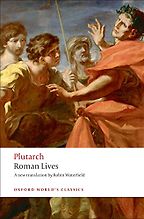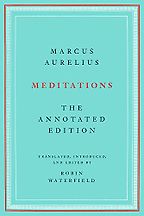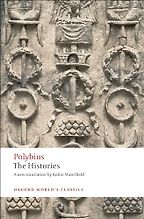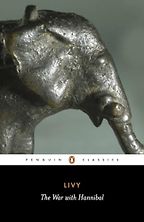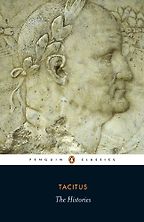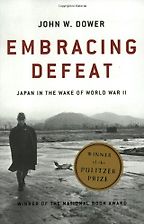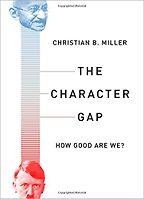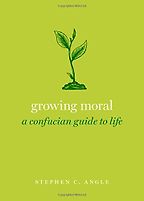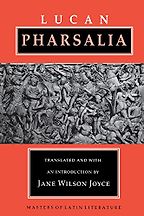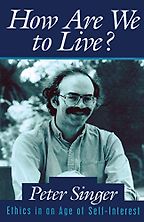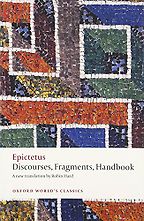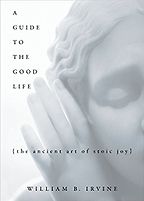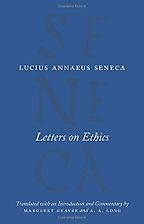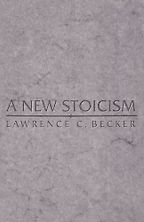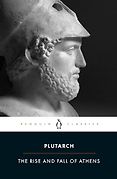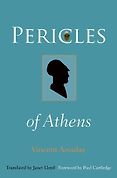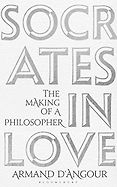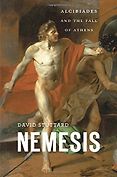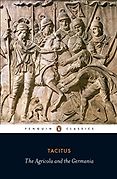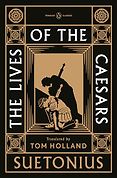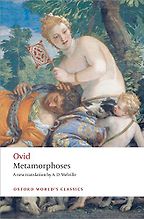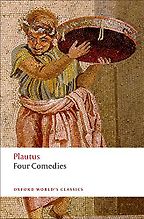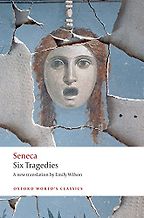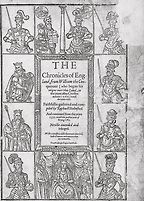Books by Robin Waterfield (translator)
The Fall of the Roman Republic
by Cassius Dio & Robin Waterfield (translator)
Roman History by Cassius Dio, Books 36-40
“Cassius Dio is the last great historian of Rome. The Empire is falling apart by then, because he’s writing in the first part of the 3rd century. What’s coming up is what is known to historians as ‘the Crisis of the Third Century.’ There is going to be this rapid turnover of emperors, and the coins are going to be devalued. The Empire isn’t expanding and has come under new pressures, both in the east and from north of the Alps. So Cassius Dio is writing at a time when things are ending. I think he sensed that, and what he wanted to do was to write the definitive history. He doesn’t just begin with Romulus and Remus, he begins with the legend of Aeneas, and comes up into his own time, which are the best bits of his book. He spent something like 30 years working on it. I think he did ten years of research before he even put pen to papyrus. He served under multiple emperors. He had close contact with Caracalla as well as Elagabalus and gives us insights into those emperors and their rule.” Read more...
“The Lives is a big folio book with a lot of close type. I don’t know where Shakespeare got it, but he seems to have had it early in his career. Some people think that episodes in an early play like Titus Andronicus may borrow from it, but he uses Plutarch all the way through his Roman plays—Julius Caesar, Coriolanus, Antony and Cleopatra—through to Timon of Athens, which comes out of a small story in the Lives. So, Plutarch’s Lives was a great fund of Roman and Greek history for Elizabethan dramatists.” Read more...
Robert S Miola, Classicist
“The first chapter is essentially a long exercise in gratitude. It’s a list of people that Marcus is grateful to, and why. ‘I’m grateful to my father, because… I’m grateful to my teacher, because… etc. etc.’ So exercises in being grateful, in gratitude, are part and parcel of the kind of exercises that you do if you want to engage in self-improvement. You want to recognize what is good in your life, you want to recognize the people that have been influential. It’s an example of a good exercise. But from this we also get an idea of what Marcus’s criteria for ‘good’ were. What is he thanking these people for? And, it turns out, he’s thanking them for being just and honest and straightforward and not deceitful to other people. So you get a long list of points of reference in a moral compass that Marcus builds for himself.” Read more...
The best books on How to Be Good
Massimo Pigliucci, Philosopher
“He is a good read. He’s quite analytical…Polybius is great on Hannibal, for example, because he went and interviewed people who had witnessed the Hannibalic invasion in the first and second decades of the 3rd century BCE. He’s writing 70 years later, but he did his boots-on-the-ground research and tried to trace Hannibal’s path across the Alps and things like that. So it’s really exciting history from someone who lived it and had access to many of the great players from that particular time. As well as Carthage, he also witnessed the fall of Corinth.” Read more...
Interviews where books by Robin Waterfield (translator) were recommended
The Best Roman History Books, recommended by Ross King
To write The Shortest History of Ancient Rome, bestselling author Ross King went back to the insightful and often entertaining accounts Roman and Greek historians gave of the city’s past. He talks us through some of his favourites, from Polybius—who wrote during the Roman Republic’s heyday—to Cassius Dio, who penned his magnum opus as the Roman Empire was in its decline.
The best books on War and Foreign Policy, recommended by John David Lewis
Wars begin when human beings choose to fight, and, consequently, a war must be directed at the enemy’s will to fight, says John David Lewis (1955-2012), a political scientist at Duke. He chooses five books on war and foreign policy—from ancient Rome to America's neoconservatives.
-

1
The Character Gap: How Good Are We?
by Christian B Miller -

2
Growing Moral: A Confucian Guide to Life
by Stephen Angle -

3
Meditations
by Marcus Aurelius & Robin Waterfield (translator) -

4
Pharsalia
by Jane Wilson Joyce (translator) & Marcus Annaeus Lucanus -

5
How Are We to Live?: Ethics in an Age of Self-Interest
by Peter Singer
The best books on How to Be Good, recommended by Massimo Pigliucci
The best books on How to Be Good, recommended by Massimo Pigliucci
Many of us aspire to do the right thing when faced with ethical choices, but for ancient philosophers being a good person involved a much broader look at our behaviour and life choices. Here, Massimo Pigliucci, a practising Stoic and philosophy professor at City College of New York, recommends books on being good, from the ancient sages to modern thinkers.
The best books on Stoicism, recommended by Massimo Pigliucci
The Stoics offer us valuable strategies for thinking about and dealing with hardships that remain relevant for modern society, says Massimo Pigliucci, Professor of Philosophy at the City College of New York and a practising Stoic. He recommends books to read to get a better idea of what Stoicism is all about and why some people find the ancient philosophy—famously practised by the Roman emperor Marcus Aurelius—comforting today.
-

1
The Rise and Fall of Athens: Nine Greek Lives
by Plutarch -

2
Pericles of Athens
by Vincent Azoulay -

3
Socrates in Love: The Making of a Philosopher
by Armand D'Angour -

4
Nemesis: Alcibiades and the Fall of Athens
by David Stuttard -

5
Agricola
by Harold Mattingly, James Rives & Tacitus -

6
The Twelve Caesars
by Suetonius and Tom Holland (translator)
Biographies of Ancient Greeks and Romans
Biographies of Ancient Greeks and Romans
The art of biography has been a work in progress down the millennia. These days, leaders are no longer celebrated for the number of enemies killed in war, nor are we as impressed with territorial conquests. Here’s a roundup of all the biographies recommended on Five Books about ancient Greeks and Romans, from contemporary accounts to more recent works.
Shakespeare’s Sources, recommended by Robert S Miola
William Shakespeare has a strong claim to be the most influential writer of all time. But whose works influenced him? And how? Robert S Miola discusses the breadth of Shakespeare’s reading, the vexed question of how we can reconstruct what he read, and the staggeringly innovative ways that Shakespeare shaped his sources

